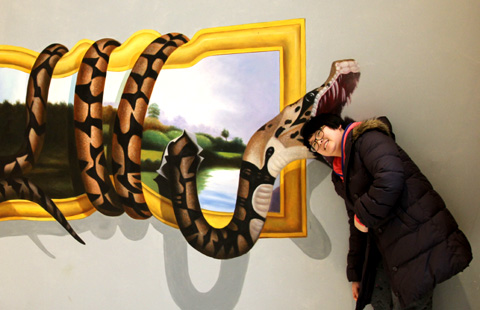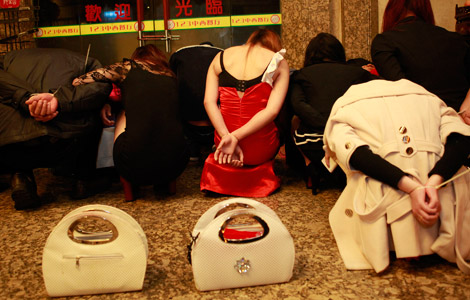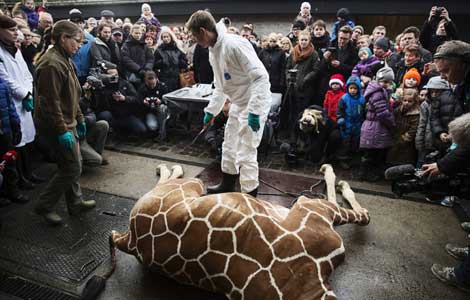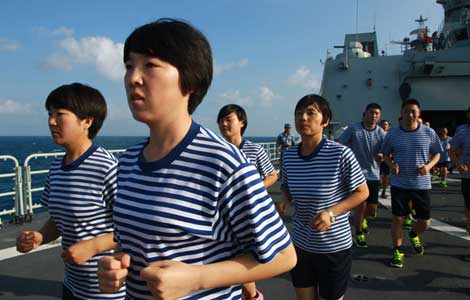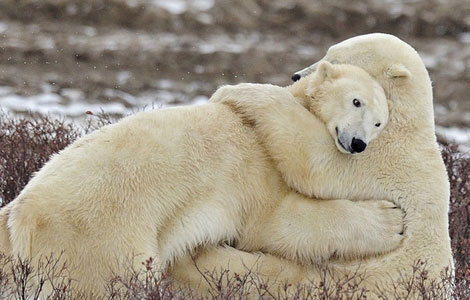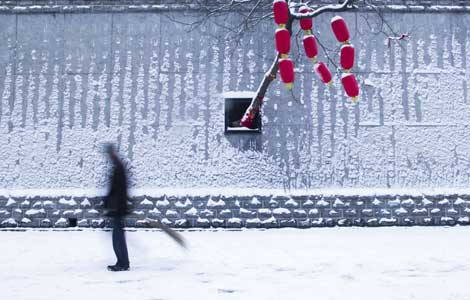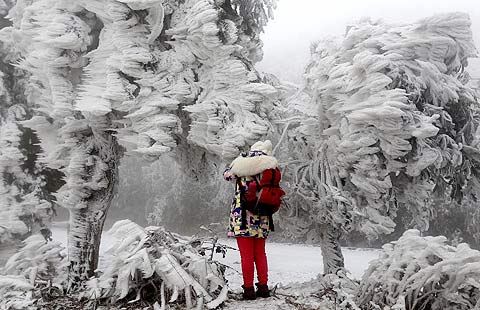US, France trying to build 'transformed' alliance
Updated: 2014-02-12 13:29
(Xinhua)
|
||||||||
WASHINGTON - US President Barack Obama and his French counterpart Francois Hollande are going all out to make optimal use of the French leader's ongoing three-day state visit to build an alliance that, they say, has been "transformed" in recent years for even closer cooperation and long-term goals.
"NEVER BEEN STRONGER"
"What I do believe, is that the US-French alliance has never been stronger, and the levels of cooperation that we're seeing across a whole range of issues is much deeper than it was, I think, five years ago, 10 years ago, 20 years ago," Obama said on Tuesday at a joint press conference with Hollande following bilateral talks at the White House.
|
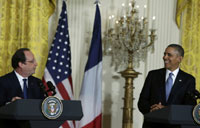 |
|
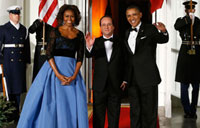 |
He identified four key areas on which the two countries have cooperated over the years -- global security, trade and economy, clean energy and global development.
"This level of partnership across so many areas would have been unimaginable, even a decade ago," Obama said. "But it's a testament to how our two nations have worked to transform our alliance."
Indeed, their current collaboration is a far cry from a relationship battered a decade ago by France's refusal to join the Iraq war, an episode that even prompted outraged US lawmakers to rename "French fries" served in Congress's cafeteria as "freedom fries."
In their joint appearance before the press, both Obama and Hollande also tried to play down their areas of divergence -- the National Security Agency's spying program and France's pledge to pull out combat troops from Afghanistan not in sync with other NATO allies.
"I want to reiterate today to the French press that we are committed to making sure that we are protecting and concerned about the privacy rights, not just of Americans, not just of our own citizens, but of people around the world as well," Obama said, as Washington's secret surveillance had sparked outcries in Europe and other parts of the world over breach of trust and intrusion of privacy rights.
"Mutual trust has been restored," declared Hollande, who said that his announcement at a NATO summit in Chicago in April 2012 that France would withdraw all combat troops from Afghanistan by the end of that year, two years ahead of an American and NATO schedule, was not "an easy decision" to make.
"BEST ALLY IN EUROPE"
"US-French relations are very strong at the moment, particularly in the foreign policy and security area," said Heather Conley, a Europe specialist at the Center for Strategic and International Studies, a think tank in Washington.
As a matter of fact, Obama is eager to see a more cooperative France now than any other time during his presidency.
"Obama benefits from demonstrating close relations with a government that has taken a more forceful line toward some issues, such as the civil war in Syria, on which some of Obama's domestic critics wish he would be more forceful," observed Paul Pillar, a visiting professor at Georgetown University for security studies.
While the US president is facing a Republican party unwilling to cooperate on almost anything in Congress, he has a number of priorities on his agenda to push through during his second year in office after winning reelection in 2012, including immigration reform and job creation.
The president's Democratic Party stands to lose ground in November mid-term elections, a prospect that has worried the party a lot as it is trying to hold the Senate after losing the House of Representatives to the GOP in 2010 elections.
France's taking the lead in Africa, notably in Mali and the Central African Republic, had pleased the Obama administration, which has shown reluctance to engage militarily overseas due to a tightening budget and the public's weariness with wars.
As in Libya in 2011, when Britain and France took the lead in launching air strikes on government targets, Washington has chosen again to "lead from behind" by offering logistical and information support for French and African Union-led efforts in Africa.
Washington needs Paris in the years ahead in its continued efforts to prevent al-Qaida from gaining new footholds across the Sahel region and help boost security in countries from Senegal to Somalia.
"France has become the US's best ally in Europe, at least as seen through the prism of crisis management and military cooperation," Frederic Bozo, an international relations expert in France, was quoted as saying by a Christian Science Monitor article.
In his efforts to forge a personal bond with Hollande, Obama took the French leader aboard his Air Force One jet, as soon as he arrived on Monday for the visit, to tour Thomas Jefferson's plantation estate outside Charlottesville, Virginia, as the third American president was a famed Francophile and a US ambassador to Paris.
For Hollande, he needs help from Obama and the US as well amid an unemployment hovering around 11 percent, an anemic growth of 0.4 percent in the last quarter, a drop of 77 percent in inflowing foreign investment in 2013 and a record low in his personal approval rating.
That's the reason the French president has chosen to head westward for a meeting with leaders of hi-tech companies in Silicon Valley on Wednesday, after attending a state dinner held in his honor on Tuesday evening at the White House.
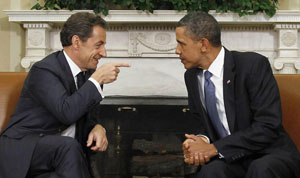 |
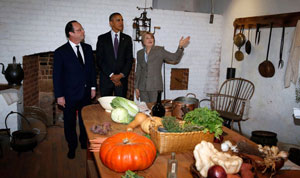 |
Most Viewed
Editor's Picks

|

|

|

|

|

|
Today's Top News
Wine critic to start world tour in Beijing
China sends contingent to US-Thailand drill
Tokyo unveils armed forces reforms
Old palace columns coming home
Liaison mechanism to link Straits
Kerry seeks to 'rule out' possibility of conflict
Official cars to be auctioned in NE China city
Joint operation ensnares poachers
US Weekly

|

|
